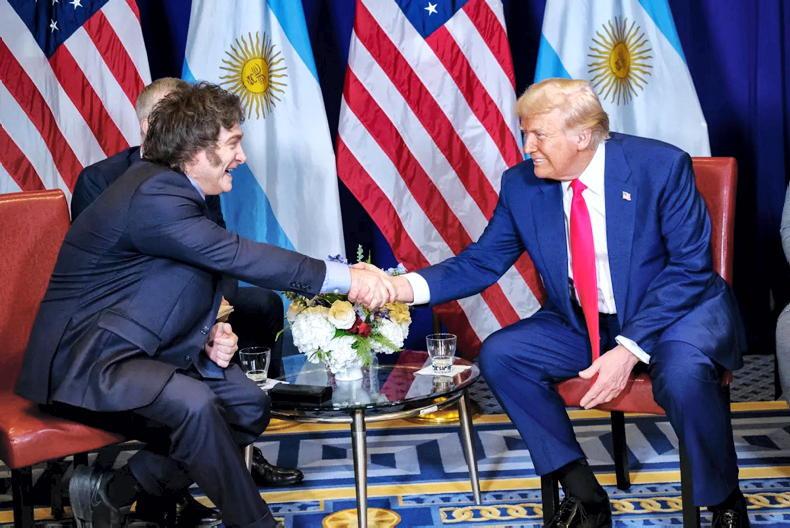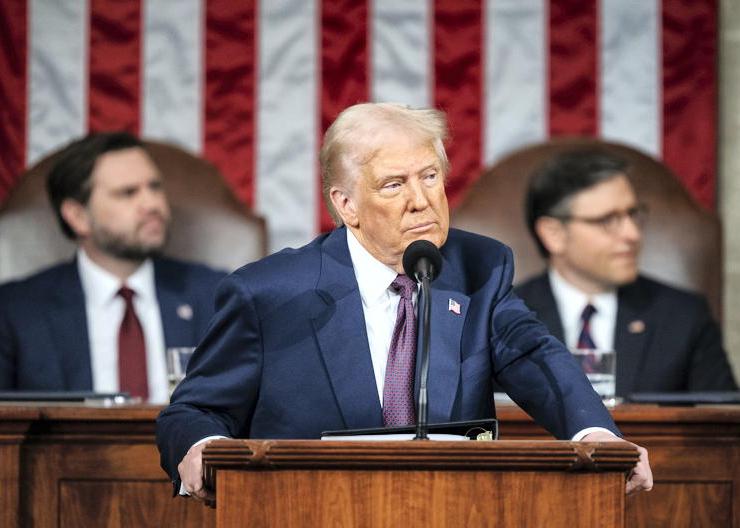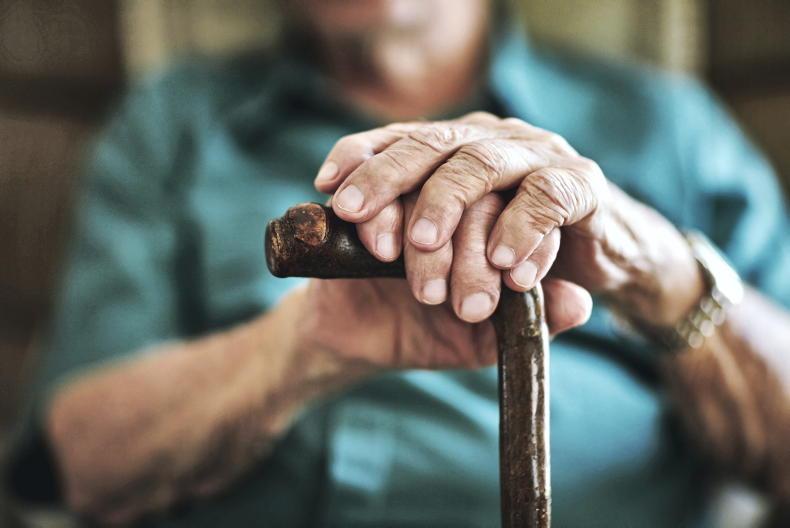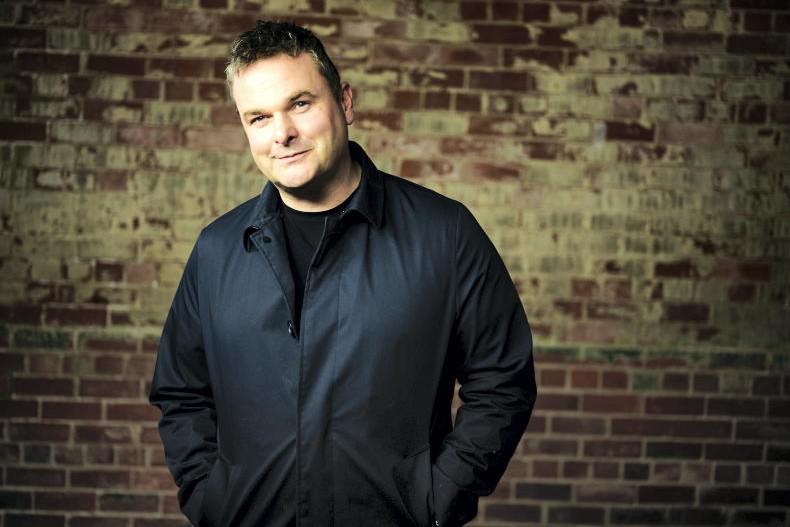“Things fall apart, the centre cannot hold, mere anarchy is loosed upon the world.”
The words of WB Yeats, written in 1919, in the aftermath of the World War I and as the War of Independence began in Ireland.
It was a time of flux, of immense change. Russia was already under Communist control, although Stalin had yet to emerge from Lenin’s shadow.
While Ireland was torn apart by conflict and partition, it could be said that post-War Europe initially thrived.
The Roaring '20s might have been most apparent in the US, but happened, at least for the monied classes, across Europe as well.
However, the 1929 Wall Street Crash prefaced the loosening of anarchy. Hitler and Franco emerged; Mussolini had already been in power for a decade by now. The road to World War II was set.
Resonance
All this has resonance for today, and for farmers in particular, but before I get there, a further digression.
When Yeats penned those lines, his wife Georgiana was both heavily pregnant and fighting for her life, stricken by the flu epidemic that cost over 25 million lives. We all have learned how terrifying a pandemic is.
She survived, but Yeats' lines resurfaced sixty years later in Stephen King’s 1978 novel The Stand .
The book foresaw a global 'superflu' that wipes out most of humanity. The virus emerges from a US military lab. The army tracks its progress, incarcerating anyone in its path.
The final act of the early phase of the novel is when General Starkey, who has been in charge of the ruthless containment programme, quotes Yeats " centre cannot hold" before taking his own life.
That novel then describes the destiny of the American survivors, only a few thousand in number. People dream of an old woman living in a cornfield in Nebraska, Mother Abigail. They gather in Boulder, Colorado. There are other dreams, of a dark force, named Randall Flagg.
He gathers his followers in Las Vegas and it becomes obvious that he is fulfilling the prediction of the closing lines of Yeats’ poem.
“What rough beast, it’s hour come round at last, slouches towards Bethlehem to be born.” A final reckoning between the forces of good and evil becomes inevitable.
Polarised politics
What has any of this to do with anything you might be remotely interested in, dear reader? Well, our society, and in particular our politics, is becoming increasingly polarised.
And farming and food production is one of those issues that is being sucked into the maelstrom. And that is a bad thing.
I am increasingly drawn to asking myself “would they be Boulder or Las Vegas?” when reading, watching and listening to politicians and opinion-formers across media and social media.
Would they end up serving Randall Flagg’s dark regime where the buses run on time and the electricity works? Unfortunately, I find myself concluding that more and more of the current crew, especially those on the extremes of the political divide would have been found in that fake desert oasis. I am wary of anyone that has a Las Vegas vibe off them ascending to power.
Hollowing out the centre
Globally, both extremes of the political spectrum seem to want to create a left/right divide, a final showdown for ultimate power. To achieve this, they'd like to hollow out the centre.
The far left has nothing but contempt for the centre. It operates on a strategy that a polarised politics will eventually lead to a socialist Utopia.
The far right also has contempt for the centre. They operate in the knowledge that when the centre ground is hollowed out, the right usually prevails over the left.
Brexit, Trumpism, the NRA, Putin’s autocratic Russian regime and its expansionist aggression are all examples of our drift towards polarity and the usually negative consequences for us all.
Centre ground
Quite often, the centre ground, which holds much more public support, is bypassed for a 'balanced debate' between someone from the far right and someone from the far left.
The rest of us are left confused, bewildered and disempowered. It might be the essence of 'good' talk radio, one that the shock-jocks like to take to extremes. But does it do society any good?
We have much to be grateful for here in Ireland
We have much to be grateful for here in Ireland. The majority of our politicians, and our political parties, tend towards the centre ground. Some people say the rise of Sinn Féin threatens this, but when I look at Sinn Fein, their parliamentarians and their policies, I don’t see a hard-left party. I see a left-of-centre party with a strong populist streak.
There is the possibility that the next government will be the most left of centre we have ever had, with Sinn Féin joined by Labour, the Social Democrats and People Before Profit/Solidarity.
Apart from the latter grouping, it could be said that the other parties all fit in the broad centre, on the left wing. There was talk that having Democratic Left in government in the 1990's would bring down society, but the likes of Proinsias de Rossa, Pat Rabbitte and Liz McManus were excellent ministers.
Dog-whistle politics
This week, Leo Varadkar’s used the phrase “a vagabond who lived in a caravan” to describe a man who left €4m to Sinn Féin. It sounded to me like classic 'dog-whistle' politics.
By dog-whistle, I mean deliberately speaking in a provocative way to polarise a debate, in the belief that you will politically benefit from the polarisation. I don’t like it, and I think Irish people in general don’t like it.
It might be ok when Eamon Dunphy does it regarding Cristiano Ronaldo or Paul Pogba, that’s sport, it’s ultimately entertainment.
Politics might be called a blood sport, but there can be consequences for deliberately dividing and polarising society.
It seems at times that there is a view within Fine Gael, shared by its leader, that a binary left/right schism in Irish politics will lead to Fine Gael and Sinn Féin becoming the dominant parties.
It’s a view I think is misguided, but even if it weren’t, it’s reckless to follow the left/right template adopted in the US and the UK.
Ways to spot the extremists
I have developed a few rules of thumb for spotting people who are on the extremes. The first is where they despise the centre.
Donald Trump is busy trying to rid the Republican Party of anyone who could be described as moderate. He had more ire for John McCain than even Barack Obama.
Boris Johnson embraced the hard-right European Research Group in pursuit of power and purged the party of moderates such as Dominic Grieve and Rory Stewart.
Another is that the two extremes swing from being in complete disagreement with each other to being in total agreement, but from opposite ends of the spectrum.
For instance, the supporters of/apologists for Vladimir Putin’s invasion of Ukraine are people on the far left such as Claire Daly and Mick Wallace and, on the far right, such as Fox News’s Tucker Carlson or Hungary president Viktor Urban.
The mention of Fox News brings another truth to mind. Anyone on the extremes will refer to balanced commentators and broadcasters as 'mainstream media', a phrase that now has negative connotations. Why, I'm not really sure.
Nadine Dorries, the British culture secretary, is currently trying to dismantle Channel 4, putting it up for sale.
We are lucky in this country, in that we haven’t gone down the GB News/Fox News road, for a balanced media is hugely important in maintaining a centre ground within political discourse.
Hitler and Stalin dismantled the media. Nixon went to war with it. Trump fomented distrust, then hatred, of anything with more balance than Fox News. If anything, Trump is the almost inevitable result of the relentless polarisation pushed by the likes of Bill O'Reilly and Sean Hannity on Fox. Like William Joyce (Lord Haw-Haw who propagandised on behalf of Hitler), I'm embarrassed they are of Irish heritage.
Polarisation of the farming debate
There are many shades of opinion within the debate around the future of food production. There is no doubt that we need to reduce the carbon footprint of meat production, but it’s a leap from that to saying that meat production is inherently bad and must be wound down.
This is not to doubt the sincerity of many of those propagating those views. Having said that, spare me the hypocrisy of the EAT foundation principals, a pair of jet-setting vegans.
It was they who funded the EAT-Lancet study that effectively said meat is killing the planet.
Some people who trashed the KPMG report on the impact on Irish farming of various sectoral emissions reduction targets because it was commissioned by the Irish Farmers Journal seemed less concerned about the objectivity of EAT-Lancet. However, it is already being discredited.
My concern is that farmers are themselves retreating from the middle ground. It’s certainly easier to believe that there is a left-wing/vegan conspiracy against cattle and dairy farmers than to take the hard road towards genuine sustainability of food production in a 21st century context.
Much of the conversations during the beef blockade of 2019 became esoteric. Conspiracy theories abounded, involving Larry Goodman and Simon Coveney, Cormac Healy and Tara McCarthy, Bord Bia and massive under-the-counter beef imports into Ireland.
None of it ever stacked up. None of this was fomented by the leaders of Beef Plan, but they quickly lost control of the agenda. I heard climate change denial on the frontline myself leaning on bales at two in the morning.
And climate change denial is horseshite. The debate has to move on to how we can play our part in tackling this great man-made challenge to the planet.
I happen to believe that farming can be a force for good, but that hard choices lie ahead for farmers and policymakers alike. And demonising Eamon Ryan and the Green Party is not constructive. By all means hold them to account, but looking for bogeymen to blame for what faces us won't change anything. It just wastes precious time.
Grasp the nettle
While the centre holds sway in countries like ours, it needs to be brave and grasp nettles. Putin must be stopped, climate change must be meaningfully addressed. People need housing and functional education and health systems.
And they need food. So, therefore, they need farmers. We should be positive about the future, not fearful of it.
That doesn’t mean there are battles ahead - the next surrounds the sectoral targets farming and land use/forestry are given.
But our sense of self-worth as food producers matters. The categorisation of farmer-owned co-ops such as Glanbia, Dairygold and Lakeland as 'big dairy' does polarise and send farmers on the defensive.
Proposals to rewild with wolves and lynx being discussed around the pros and cons for deer and squirrel control, as if sheep production in particular were not a factor, leave farmers upset (there are some obvious punny observations around lynx - bad smells and sweating - but I choose to rise above them).
Poetry corner again
Back to Yeats. There is another line in The Second Coming that resonates.
“The best lack all conviction, while the worst are full of passionate intensity.”
It describes Trump, whose anger and aggression struck a chord with people who feared they were missing out in life or had been bypassed by progress.
It describes Boris and his unique spoofery and clowning.
The phrase “lack all conviction” epitomises criticisms of Joe Biden, Keir Starmer, Theresa May or indeed Micháel Martin, Simon Coveney or Charlie McConalogue here at home.
Being reasonable, thoughtful and balanced is nowadays seen as weakness. Bluff, bluster and shouting, whether of truth or lies, are more appealing. Shakespeare had a phrase for this - “full of sound and fury, signifying nothing”.
Let me finish with the phrase uttered by actor Matthew McConaughey last week. Speaking after the massacre of schoolchildren in his hometown of Uvalde, he spoke of “aggressively centric government”.
I like the sound of that. For me centrism is not a declaration that the left or the right are wrong. Although it clearly infers the hard-right and hard-left are usually wrong, if not in their diagnosis, in their proposed solutions.
Centrism is more properly the belief that solutions can only be found by consensus and by reaching out to the other side. And that compromise might be needed, not an achievement of all we want, but progress nonetheless.
As Matthew McConaughey’s character in Dazed and Confused says, “alright, alright, alright”.
Have a good weekend.










SHARING OPTIONS